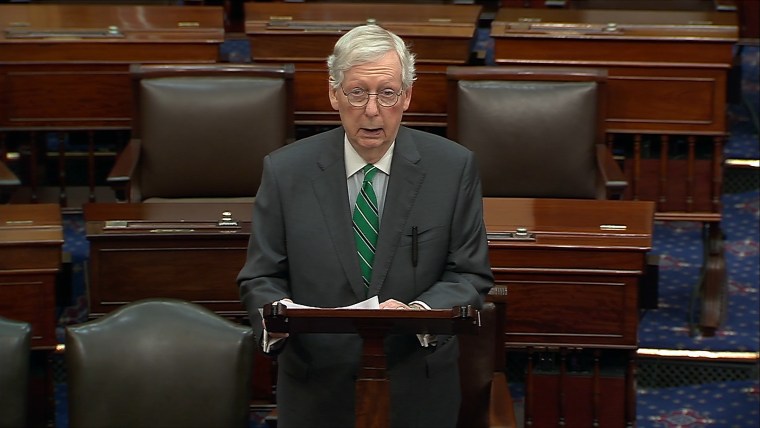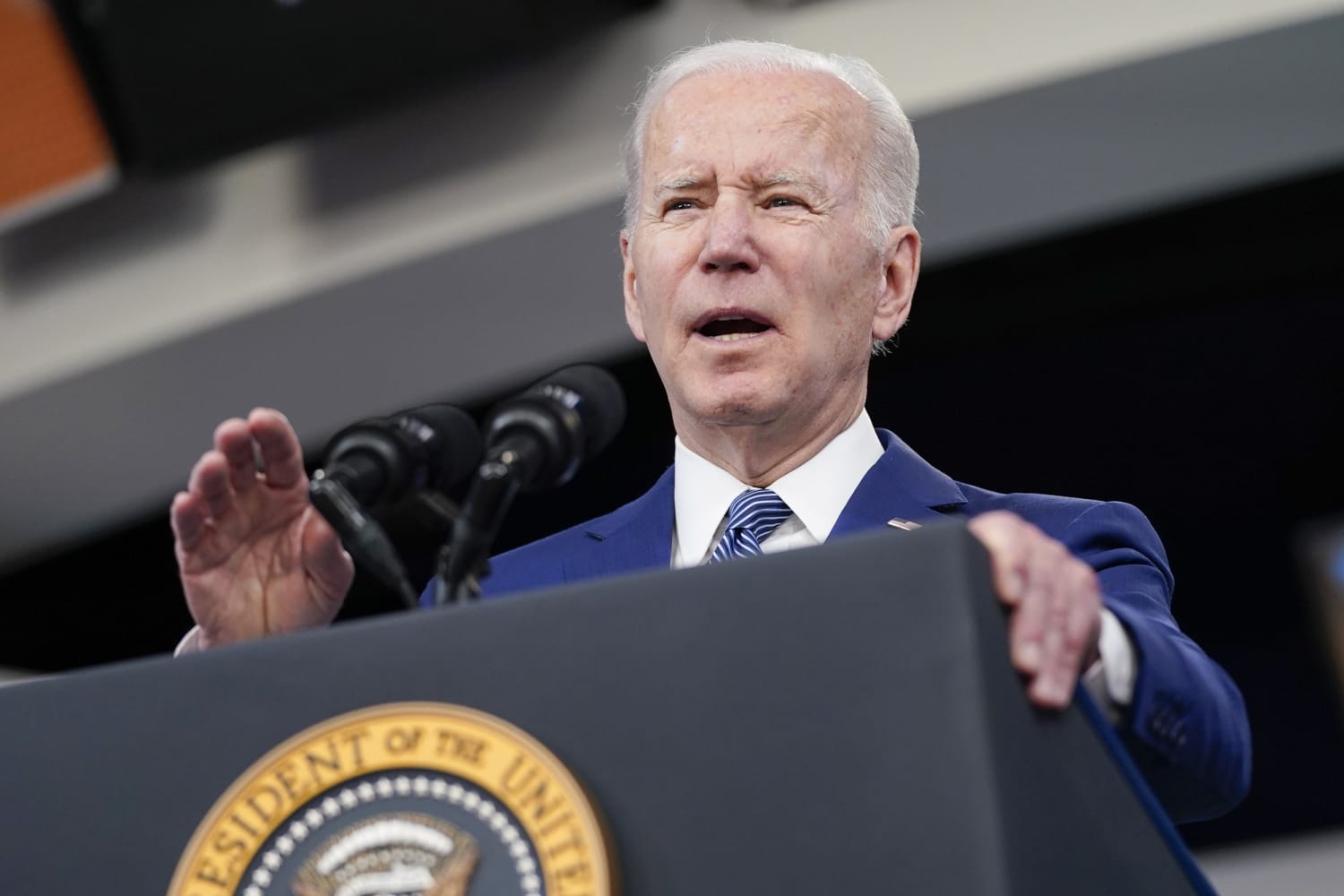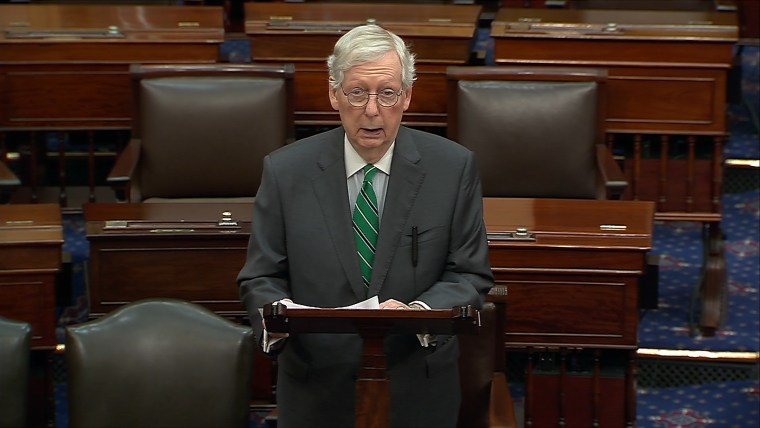WASHINGTON — For decades, American business leaders have been reliable standbys in the government’s debt ceiling debates: caravaning to meet with President Donald Trump, holding stakeouts in the White House’s driveway under President Bill Clinton or writing strongly worded letters to President Barack Obama.
With less than a month left until the June 1 deadline that the Treasury has warned could mean default, Corporate America is sitting this one out — at least publicly, and at least for now.
The executives who are talking to congressional leaders and the White House are doing so privately, not as part of a concerted effort, as they seek to avoid stepping into the fray of a highly charged debate in which, nearly a dozen executives said in interviews, the costs of doing so are calculated to be higher than the benefits.
It’s unclear whether Corporate America could provide much help. After years in lockstep with Republicans, the last decade has been characterized by an erosion of the symbiotic relationship. A battery of phone calls from the nation’s executives may do little to persuade Republican stalwarts to get on board with the Biden administration to lift the debt limit – or to persuade the White House to agree to spending cuts demanded by the GOP.
Individual CEOs see little advantage in spending their own political lobbying on the debt ceiling, because it doesn’t provide a direct benefit to their companies and it could backfire by drawing negative attention from politicians, potentially putting tax benefits and subsidies they rely on at risk in the fight over cutting government spending, according to business lobbyists.
“It takes a pretty generous CEO to say, ‘I am going to invest my company’s resources into doing what’s right for the whole country despite the fact that it doesn’t advantage me in any way at all.’ That’s just like the opposite of human nature,” said Sam Geduldig, a Republican lobbyist. “That’s not their job to get the debt ceiling raised. That’s not why they’re CEO of their companies.”
Case in point: None of the executives interviewed for this article would agree to go on the record, requesting anonymity to discuss private deliberations and their views on an increasingly fraught topic.
A few well-placed Wall Street executives with ties to the administration have made some contact.
Jane Fraser, chief executive of Citigroup, discussed the seriousness of the issue with members of Congress and the Biden administration as recently as Wednesday, according to a source briefed on the meetings.
Brian Moynihan, the chairman and CEO of Bank of America, met in recent weeks with White House officials and congressional leadership, said a source briefed on the meetings, both to urge a resolution to the debt debacle and to highlight the need to lower government spending. Moynihan and his top executives have warned the parties of “disastrous consequences” if a deal isn’t reached, the source said.
The White House agrees the repercussions could be far-reaching, and it is trying to place the blame across the aisle.
“The 2011 brinkmanship depressed business and consumer confidence, crashed the stock market and increased borrowing costs,” White House spokesman Michael Kikukawa said, referring to the last time the nation teetered on the edge of default amid protracted congressional negotiations. “The best thing for businesses and the economy broadly would be for congressional Republicans to stop taking the economy hostage and avoid default, as they did three times under the last president.”
In the decade since the 2011 showdown, the national debt has swelled to more than $31.4 trillion from $14 trillion, and the nonpartisan Congressional Budget Office has estimated that, in 30 years, the federal debt will stand at double the nation’s economic output. That trajectory has challenged business leaders to advocate for a nuanced solution that avoids catastrophe both now and in the future.
“The business community will opine on the solution, not the problem,” said another executive in touch with the administration. “The financial industry understands the risks and has been vocal behind the scenes. But it’s early to rile them up.”
In 2011, Larry Fink, the CEO of the investment company BlackRock, corralled a dozen asset management executives to sign a letter demanding that the Obama administration and congressional leaders reach a deal to avert a default. But the letter was dated July 25 — one week before the deadline — when a breach was becoming an increasingly possible scenario. Fink didn’t respond to a request for comment about whether he plans to engage now.
Even if C-suites decide to speak up, their clout has waned as public opinion has shifted against business, a shift fueled by the Great Recession, the pandemic and recent weakness in the banking system.
“Republicans aren’t listening to financial CEOs the way they once did,” said a source with knowledge of conversations then and now. “I’m pessimistic about the impact it would have, even if we see [the engagement] closer to the deadline.”
In past fights with high economic stakes, the U.S. Chamber of Commerce — a titan of K Street that represents millions of businesses of varying sizes — took the lead in Washington for the business community. But relations between the GOP and the Chamber have deteriorated, spurred by the business group’s stances on social issues and the Republican Party’s Trump-led move to populism. That has left businesses with few allies on Capitol Hill.
House Speaker Kevin McCarthy of California and Majority Leader Steve Scalise of Louisiana have waged war against the Chamber, refusing to meet with its representatives, citing its decision to back some Democrats in recent elections.
“To state the obvious, it’s not 2011,” Neil Bradley, the Chamber’s chief policy officer, said when he was asked about the group’s waning influence among Republicans in the last decade. “The biggest difference … is in 2011, then-President Obama and then-Vice President Biden were actively engaged in negotiations and viewed attaching fiscal restraint measures to the debt limit as a reasonable kind of legitimate exercise.”
In public statements, the Chamber of Commerce and the Business Roundtable — two of the most influential business lobbies — have urged Congress and the White House to engage in earnest negotiations while stopping short of taking sides or suggesting the contours of a potential deal.
Neither group supports the clean debt ceiling increase the Biden administration is demanding. A White House official says the administration continues to make its case with Wall Street and various business groups.
But positions could change in the coming weeks as the showdown intensifies, said Scott Mulhauser, who was a senior staffer to Biden when he was vice president and now runs public affairs for Bully Pulpit Interactive.
“Deadlines drive decisions in Washington,” Mulhauser said. “And there is no bigger deadline than the debt limit default date.”
Source: | This article originally belongs to Nbcnews.com











